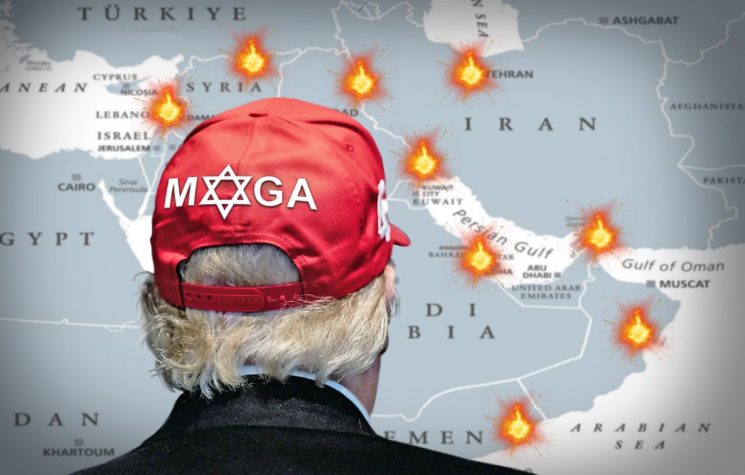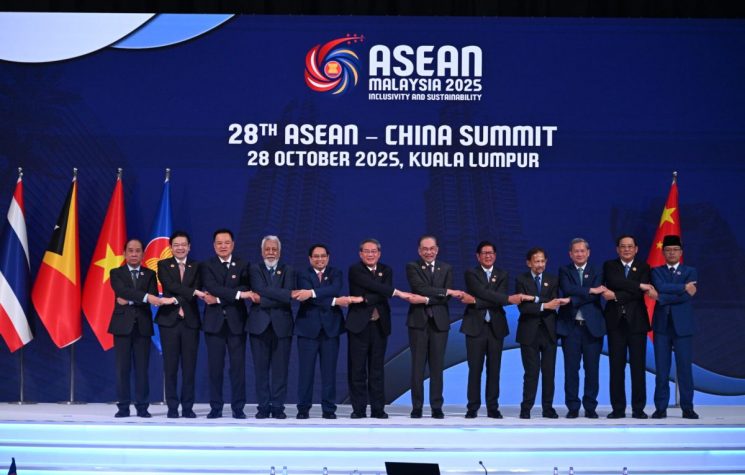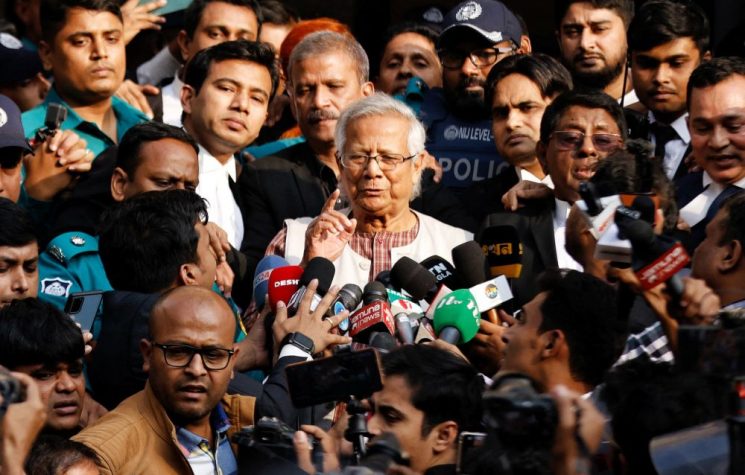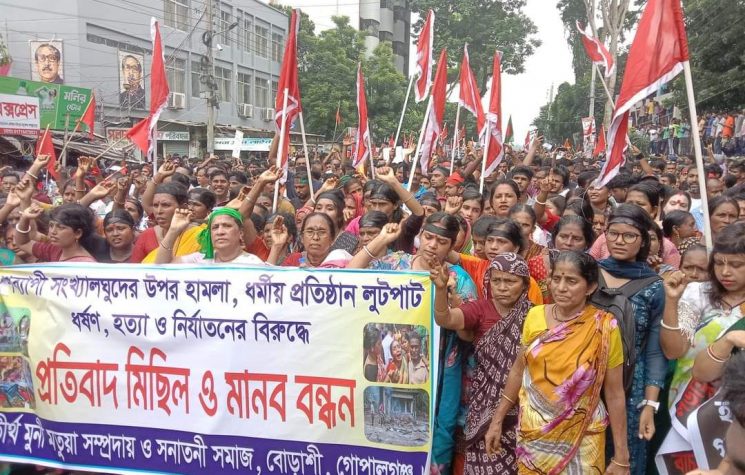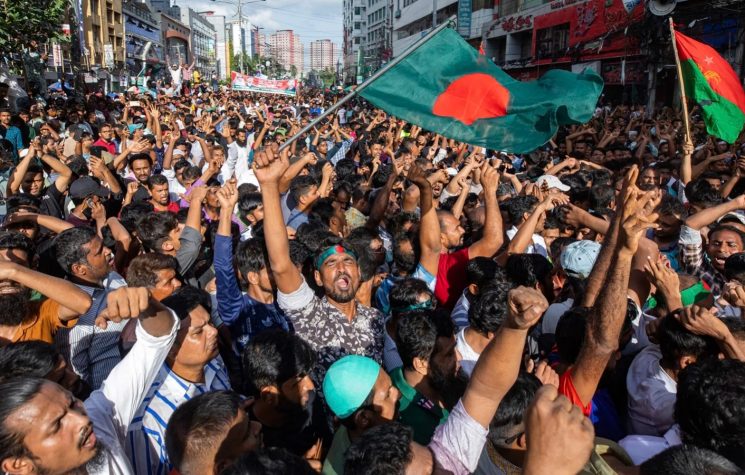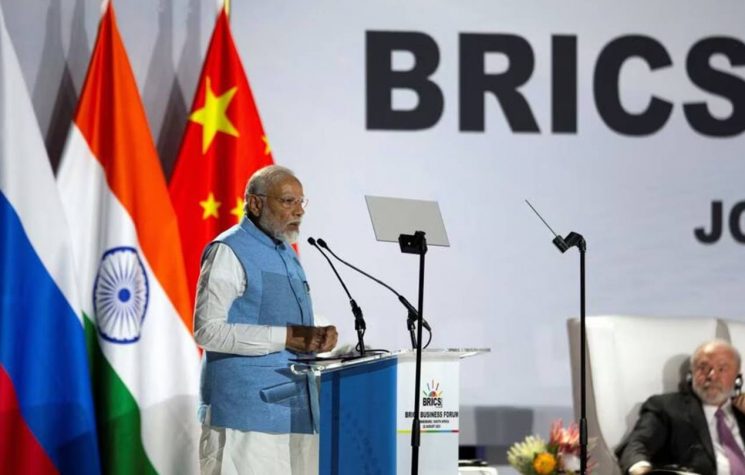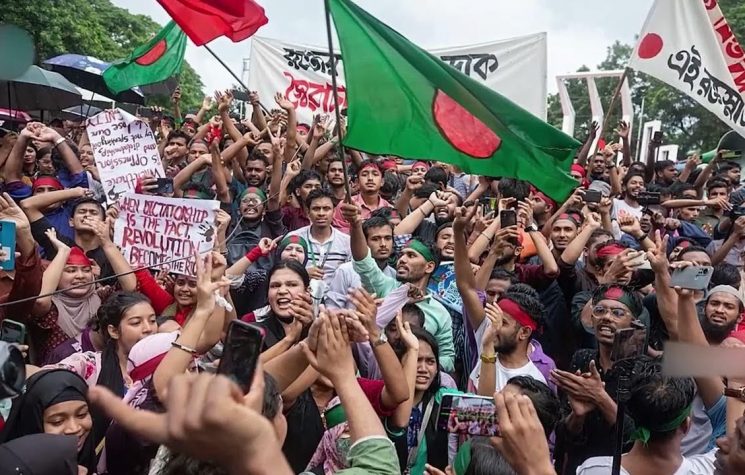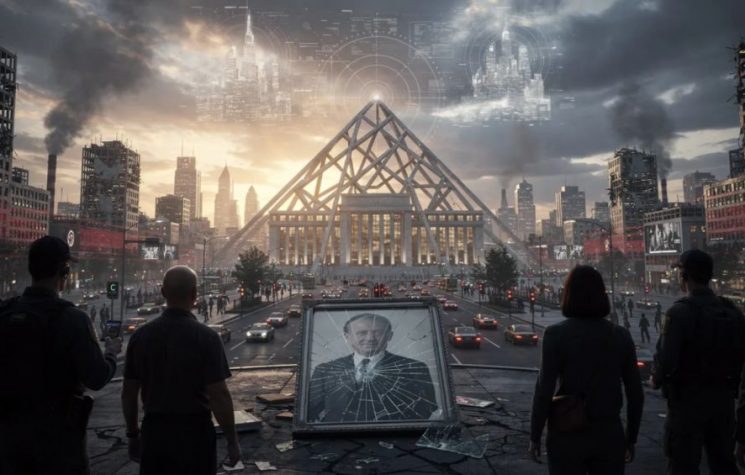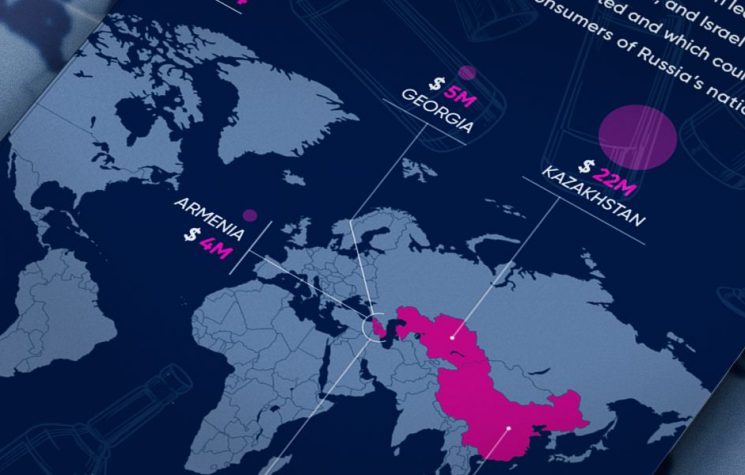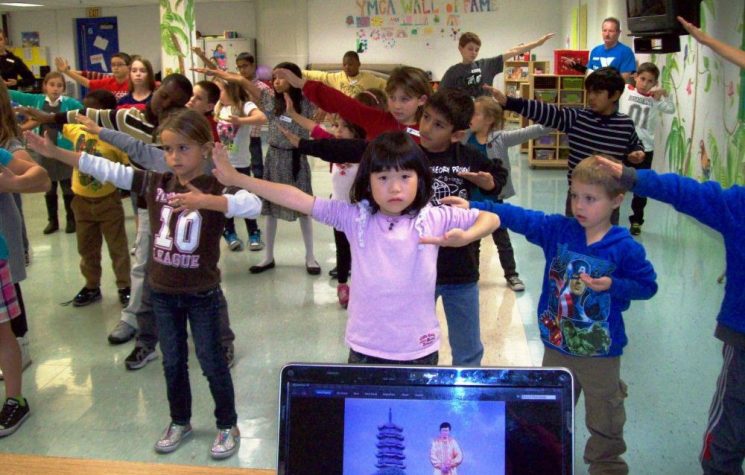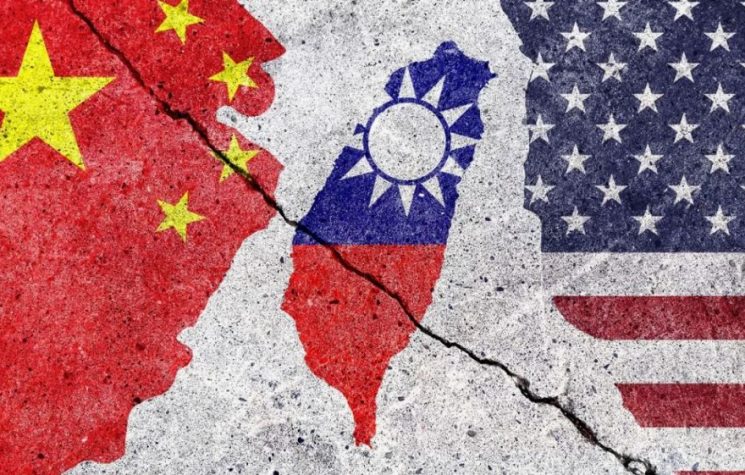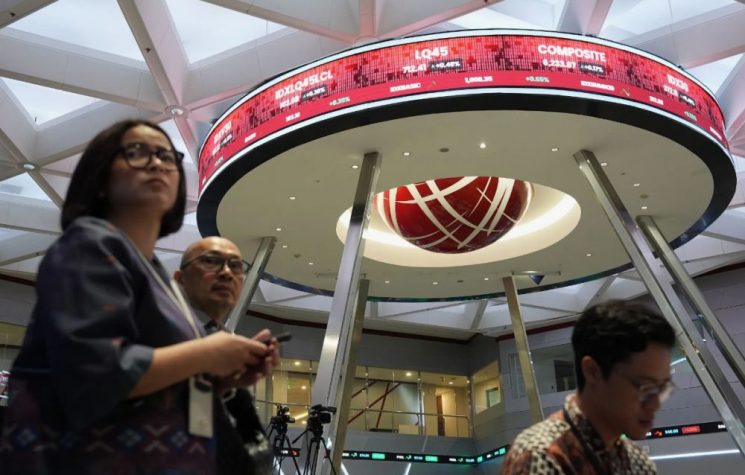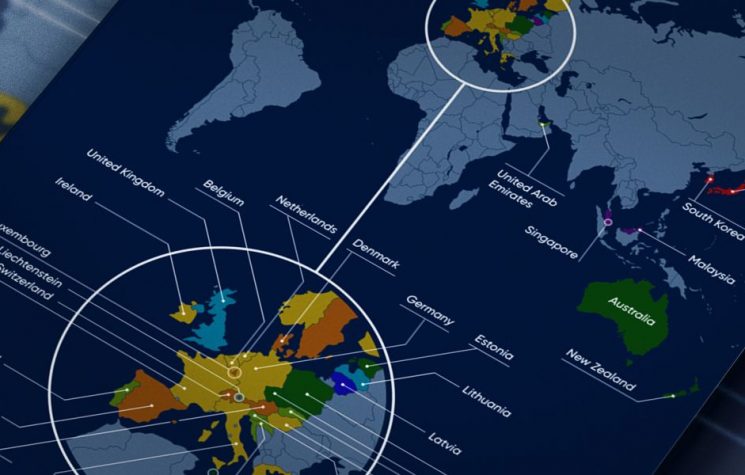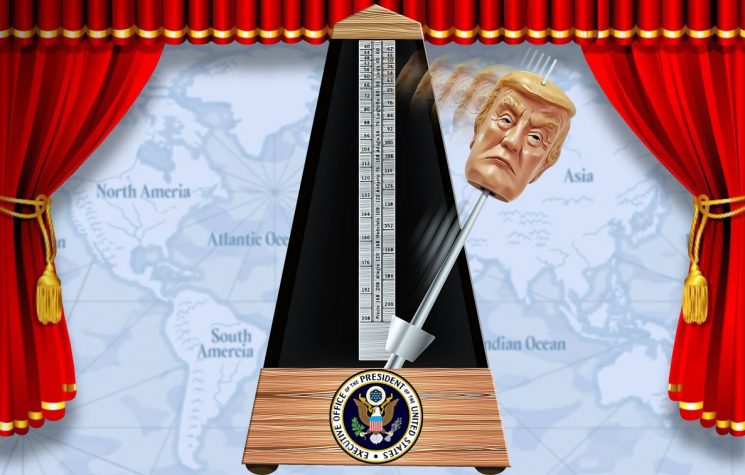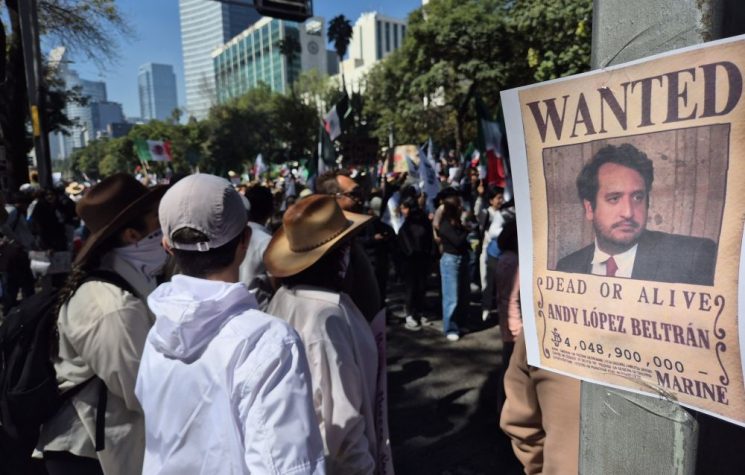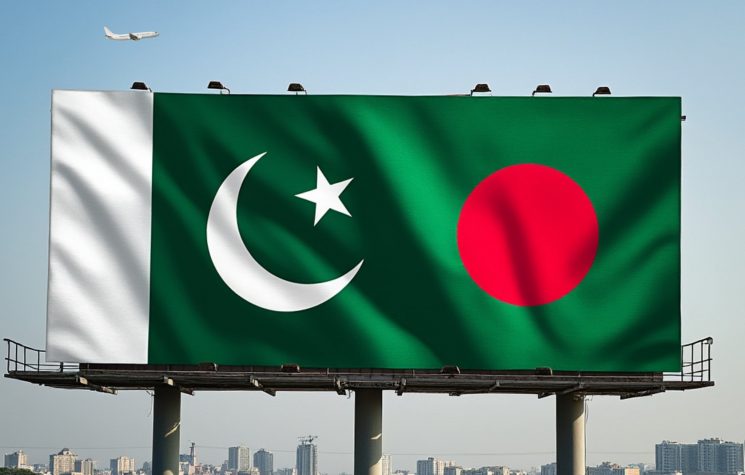The revolution to oust a long-serving leader, who kept the Muslim majority and the Hindu minority in a peaceful coexistence, has opened a new chapter for Bangladesh society.
Contact us: info@strategic-culture.su
Former Bangladeshi Prime Minister, Sheikh Hasina, has a shocking accusation against the U.S. On August 12, while in exile in India, she told the Economic Times, “I could have remained in power if I had surrendered the sovereignty of Saint Martin Island and allowed America to hold sway over the Bay of Bengal. I beseech to the people of my land, ‘Please do not be manipulated by radicals’.”
Hasina resigned on August 5 after weeks of violent street protests by students angry at a law which awards government civil service jobs. The protests began in June 2024 after the Supreme Court reinstated a 30% quota for descendants of the freedom fighters who won the independence for the country in 1971 after fighting against Pakistan with the help of an Indian military intervention. The students felt they were facing an unfair system and would have limited opportunity for a job based on their educational qualifications, instead of ancestry.
On July 15, Dhaka University students were protesting and calling for quota reforms, when suddenly they were attacked by individuals with sticks and clubs. Similar attacks began elsewhere and rumors circulated that it was a group affiliated with the ruling Awami League.
Some believe the group who began the violence was paid mercenaries employed by a foreign country. Street protesters who were met by a brutal crackdown were the western media description of the March 2011 uprising in Syria. However, the media failed to report that the protesters were armed and even on the first day of violence 60 Syrian police were killed. The question is in cases like Bangladesh: was this a grass-roots uprising, or a carefully staged event by outside interests?
By July 18, 32 deaths were reported, and on July 19, there were 75 deaths. The internet was shut down, and more than 300 were killed in less than 10 days, with thousands injured.
Some call the Bangladeshi uprising the ‘Gen Z revolution’, while others dub it the ‘Monsoon revolution’. But, experts are not yet united in a source of the initial violent attack on student protesters.
Hasina had won her fourth consecutive term in the January 7 elections, which the U.S. State Department called ‘not free or fair’. Regional powerhouses, India and China, rushed to congratulate the 76-year-old incumbent.
Hasina had held the peace in a country since 2009 while facing Radical Islamic threats. Targeting Bangladeshi Hindus was never the message or the intent of the student movement, according to some student activists.
Meanwhile, on May 28, China praised Hasina for her decision to deny permission for a foreign military base, commending it as a reflection of the Bangladeshi people’s strong national spirit and commitment to independence. Chinese Foreign Ministry spokesperson Mao Ning said, “China has noted Prime Minister Hasina’s speech, which reflects the national spirit of the Bangladeshi people to be independent and not afraid of external pressure.”
Mao said some countries seek their own selfish interests, openly trade other countries’ elections, brutally interfere in other countries’ internal affairs, undermine regional security and stability, and fully expose their hegemonic, bullying nature.
Without naming any country, Hasina had said that she was offered a hassle-free re-election in the January 7 polls if she allowed a foreign country to build an airbase inside Bangladeshi territory.
“If I allowed a certain country to build an airbase in Bangladesh, then I would have had no problem,” Hasina told The Daily Star newspaper.
The Saint Martin Island is a stretch of land spreading across merely three square kilometers in the northeastern part of the Bay of Bengal, and is the focus of the U.S. military who seek to increase their presence in Southeast Asia as a balance against China.
The U.S. State Department, aided by the CIA, have a long history of political meddling in foreign countries. Examples are the 2003 ‘regime change’ invasion of Iraq, and in the 2011 ‘Arab Spring’ we saw the U.S. attack Libya to overthrow the government, the U.S. support of the ‘freedom fighters’ in Syria who were Al Qaeda terrorists, and the U.S. manipulated election in Egypt which installed a Muslim Brotherhood member as President. The American Lila Jaafar received a 5 year prison sentence for her manipulation of the Egyptian election, but Hillary Clinton evacuated her from the U.S. Embassy in Cairo before she could serve her prison sentence, and she is now the Director of the Peace Corps with a White House office.
The U.S. often uses sectarian issues and strife to accomplish their goals abroad. After the Islamists in Bangladesh drove out Hasina, reports of attacks on Hindu temples and businesses circulated on mainstream Indian TV channels.
Meanwhile, China has invested over U.S.D 25 billion in various projects in Bangladesh, next highest after Pakistan in the South Asian region, who also steadily enhanced defense ties with Bangladesh supplying a host of military equipment, including battle tanks, naval frigates, missile boats besides fighter jets.
Indian Prime Minister Narendra Modi and Hasina had long ignored the democratic backsliding in each other’s countries to forge close ties, and bilateral trade increased with Indian corporations striking major deals
“I also congratulate the people of Bangladesh for the successful conduct of elections. We are committed to further strengthen our enduring and people-centric partnership with Bangladesh,” Modi said in a post on X in January.
The revolution to oust a long-serving leader, who kept the Muslim majority and the Hindu minority in a peaceful coexistence, has opened a new chapter for Bangladesh society. Will this prove to be a destabilizing period in which the Islamic party, Jamaat, holds sway over the society? Will the secular history of Bangladesh be forgotten? The final question will be, when will the new U.S. military base be opened on Saint Martin Island?










